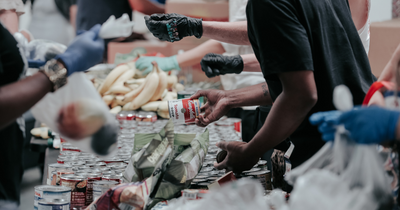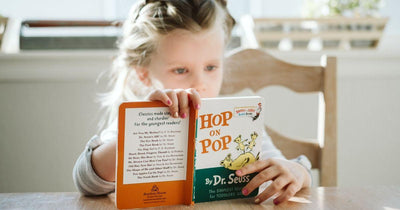Looking to have a prosperous year ahead? Don't forget to use these auspicious phases when tossing your Yu Sheng during the Chinese New Year!
With Chinese New Year just around the corner, now might be a good time to introduce your little ones and involve them in the yearly customs and traditions of the festival.
Let's start with a very Singaporean tradition, Lo Hei, or tossing the Yu Sheng / 鱼生, followed by 4 customs for the Chinese New Year!
And since it is the Year of the Horse, let us wish you and your families 马年大吉 (Mǎ nián dà jí - Great luck in the Year of the Horse), and 马到成功 (Mǎ dào chéng gōng - Instant success)!
Here are other Chinese New Year articles that you might be interest in
- Chinese New Year 2026 Events and Celebrations
- Yusheng and Chinese New Year Menus for 2026
- Cute and Interesting Red Packets for CNY 2026
- List of Lion Dance Performances during CNY 2026
Lo Hei (Yu Sheng / 鱼生)

Every year, when family and friends gather for Chinese New Year, this is a dish not to be missed as it symbolises good luck, good health and good weath! When preparing this dish, you are suppose to say certain auspicious phrases to guarantee a blessed year ahead.
Let us help you with a step-by-step to a successful Lo Hei and so you can share with your Little Ones the meaning of this tradition too.
1. Placing the Yu Sheng
Say: 恭喜发财 (Gong Xi Fa Cai) and 万事如意 (Wan Shi Ru Yi)
Meaning: to be prosperous and have lots of money, and may all your wishes be fulfilled and everything you do be smooth-sailing.
2. Squeezing the lime or when adding the pomelo
Say: 大吉大利 (Da Ji Da Li)
Meaning: to have good luck, good fortune and great prosperity. The word lime and fortune (吉) are Mandarin homophones (words that sound alike).
3. Adding the raw fish
Say: 年年有余 (Nian Nian You Yu)
Meaning: to enjoy abundance throughout the year. The word fish and abundance (余) are Mandarin homophones.
4. Sprinkling the pepper, cinnamon or five-spice powder powder
*normally in the red and green packets
Say: 招财进宝 (Zhao Cao Jin Bao),
Meaning: to attract great wealth and treasure.
5. Sprinkling the golden peanut powder and sesame seed
Say: 生意兴隆 (Sheng Yi Xing Long) and 金银满屋 (Jin Yin Man Wu)
Meaning: to have a flourishing business and a household filled with gold and silver. As an icon of longevity, peanuts also symbolise eternal youth.
6. Pouring the oil
Say: 一本万利 (Yi Ben Wan Li) and 财源广进 (Cai Yuan Guang Jin)
Meaning: to enjoy a ten thousand-fold profit from your investments and that you will be blessed with many sources of wealth.
7. Adding the plum sauce
Say: 甜甜蜜蜜 (Tian Tian Mi Mi)
Meaning: to have a sweeten life and loving relationships. A play on the taste of the plum sauce and the Mandarin idiom.
8. Scattering the crackers
Say: 满地黄金 (Man Di Huang Jin)
Meaning: to signify the floor being covered with gold, and for you to obtain abundant wealth. Because, that's what the crackers look like!
9. Tossing the Yu Sheng
Say: 发啊 or more commonly Huat Ah!
By this time, you and those around you will be rambling any auspicious phrase that comes to mind! Remember, the higher you toss, the better your fortune for the year!
Additional tip: At the end of each step, after saying the auspicious phrase, you may also say 收到 (shou dao), which mean received, to represent you receiving the intentions of the phrase!

Source: Sandy Millar/Unsplash
Go On a Spring Cleaning Spree

Source: The Creative Exchange/Unsplash
Out with the old and in with the new! Spring cleaning is normally done before the 1st day of the new year and is thought to rid the house of the bad luck (and broken toys) of the past year, and be ready to fill it with the good luck of the new year!
Also, to not sweep away the good luck of the new year, brooms are usually kept away for the 1st few days.
Splurge on Festive Shopping

Source: Becca McHaffie/Unsplash
It seems logical that after we have spring cleaned and gotten rid of half the wardrobe (since we can't fit in them anymore), we should be buying new clothes to replace them. But why do we wear new clothing in the 1st day of Chinese New Year?
It is to symbolise a fresh new start with high hopes for the new year! It is also believed that the 1st day of the year sets the tone for the rest of the year, thus we should make an effort to dress well.
Now, you may explain to your hubbies that the shopping sprees are for a better year!
Put Up the Fu (福) Character Upside-down

Not just Fu, which means good luck and prosperity, but if you intend to put up any Auspicious blessings in the house, you should place it upside-down.
The reason is simple, the term 倒 (dao) which means upside-down, also sounds like the Mandarin word for arrived. So by placing it upside down, 福倒 (fu dao), it sounds like good luck and prosperity has arrived.
Giving Out Hong Baos or Red Envelopes

Source: Mae Mu/Unsplash
The kids love receiving them but why do we give out red packets? Beyond the sharing of luck, happiness and prosperity, the red packet is actually a symbol of warding away evil spirits.
Traditionally known as 压岁钱 (ya sui qian), 8 coins tied together with red strings, these were given to children to ward away 祟 Sui, a monster that came around with intentions to harm them on the night of New Year's Eve. Over time, the coins and strings became the red packets that we know today.
There you have it, some of the customs and traditions of Chinese New Year, and the meaning behind them! Did we miss anything out? Let us know if we did!









